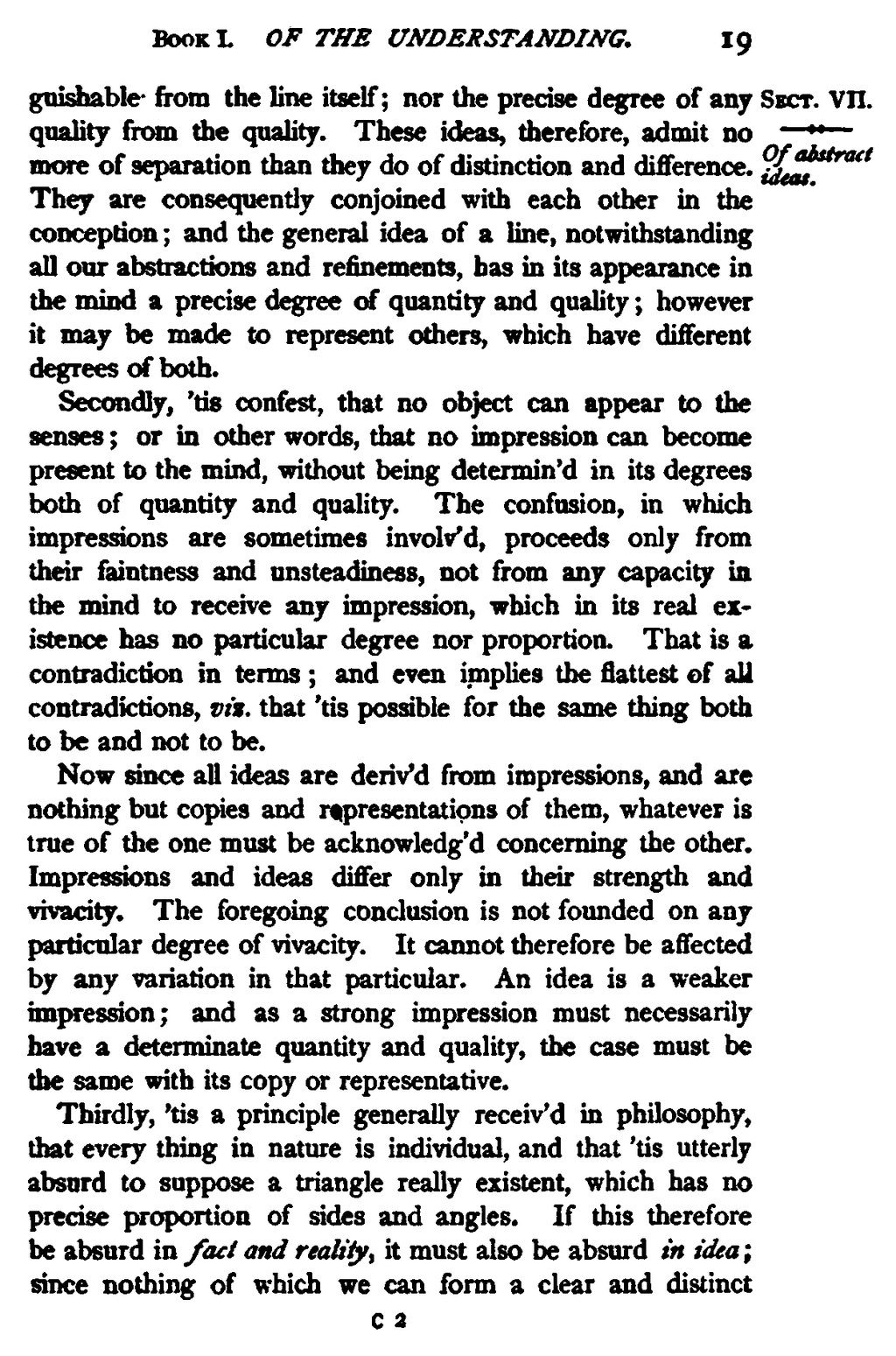guishable from the line itself; nor the precise degree of any quality from the quality. These ideas, therefore, admit no more of separation than they do of distinction and difference. They are consequently conjoined with each other in the conception; and the general idea of a line, notwithstanding all our abstractions and refinements, has in its appearance in the mind a precise degree of quantity and quality; however it may be made to represent others, which have different degrees of both.
Secondly, ’tis confest, that no object can appear to the senses; or in other words, that no impression can become present to the mind, without being determin’d in its degrees both of quantity and quality. The confusion, in which impressions are sometimes involv’d, proceeds only from their faintness and unsteadiness, not from any capacity in the mind to receive any impression, which in its real existence has no particular degree nor proportion. That is a contradiction in terms; and even implies the flattest of all contradictions, viz. that ’tis possible for the same thing both to be and not to be.
Now since all ideas are deriv’d from impressions, and are nothing but copies and representations of them, whatever is true of the one must be acknowledg’d concerning the other. Impressions and ideas differ only in their strength and vivacity. The foregoing conclusion is not founded on any particular degree of vivacity. It cannot therefore be affected by any variation in that particular. An idea is a weaker impression; and as a strong impression must necessarily have a determinate quantity and quality, the case must be the same with its copy or representative.
Thirdly, ’tis a principle generally receiv’d in philosophy, that every thing in nature is individual, and that ’tis utterly absurd to suppose a triangle really existent, which has no precise proportion of sides and angles. If this therefore be absurd in fact and reality, it must also be absurd in idea; since nothing of which we can form a clear and distinct